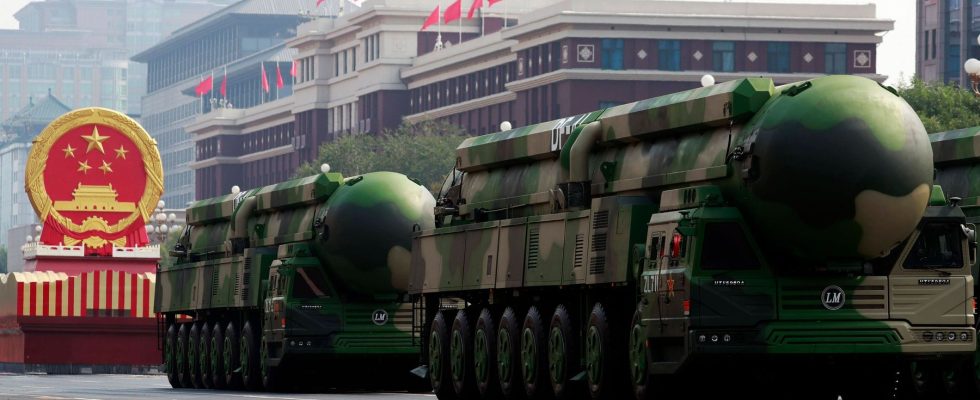The total number of nuclear warheads in the world is falling. The number of those who are operational, however, is increasing, especially in China.
According to a report, China has expanded its arsenal of operational nuclear weapons in the past year. The total number of nuclear warheads worldwide continues to fall, the Stockholm peace research institute Sipri said on Monday when it published its annual report on the subject. But the number of usable nuclear warheads increased in 2022 compared to the previous year – especially in China, it said.
“We are nearing, or have already reached, the end of a long period of the world’s declining number of nuclear weapons,” Sipri director Dan Smith told AFP.
The total number of nuclear warheads owned by the nuclear powers Britain, China, France, India, Israel, North Korea, Pakistan, the United States and Russia fell from 12,710 to 12,512 last year, according to Sipri. Of these, however, 9,576 were in “military stock for potential use” – 86 more than in the previous year.
Current increase largely due to China
In its research, Sipri distinguishes between ready-to-use stock and total stock. The latter also includes older nuclear weapons and those intended for decommissioning.
Inventory represents the “serviceable nuclear warheads and these numbers are beginning to rise slightly,” Smith said. The number is still a long way from the more than 70,000 during the 1980s.
Most of the current increase is due to China increasing its stockpile of nuclear warheads from 350 to 410. India, Pakistan, North Korea and, to a lesser extent, Russia also increased stockpiles, while the other nuclear powers maintained their levels. Russia and the US still have nearly 90 percent of all nuclear weapons in the world.
embed
Disarmament diplomacy backwards since Russian invasion
Sipri researchers also noted that diplomatic efforts on nuclear arms control and disarmament have suffered setbacks since Russia’s invasion of Ukraine. Washington halted its “bilateral strategic stability dialogue” with Moscow.
In February, Russia announced that it would end its participation in the 2010 New Start nuclear arms control treaty — according to Sipri, “the last remaining” treaty that limits US and Russian strategic nuclear weapons.
Smith pointed out that the rising stockpiles cannot be explained by the war in Ukraine because it takes longer to develop new warheads. In addition, the countries with the largest increases are not directly affected by the war. Beijing has recently invested heavily in all areas of its military. “What we’re seeing is China’s rise to global power, that’s the reality of our time,” Sipri director Smith said.

